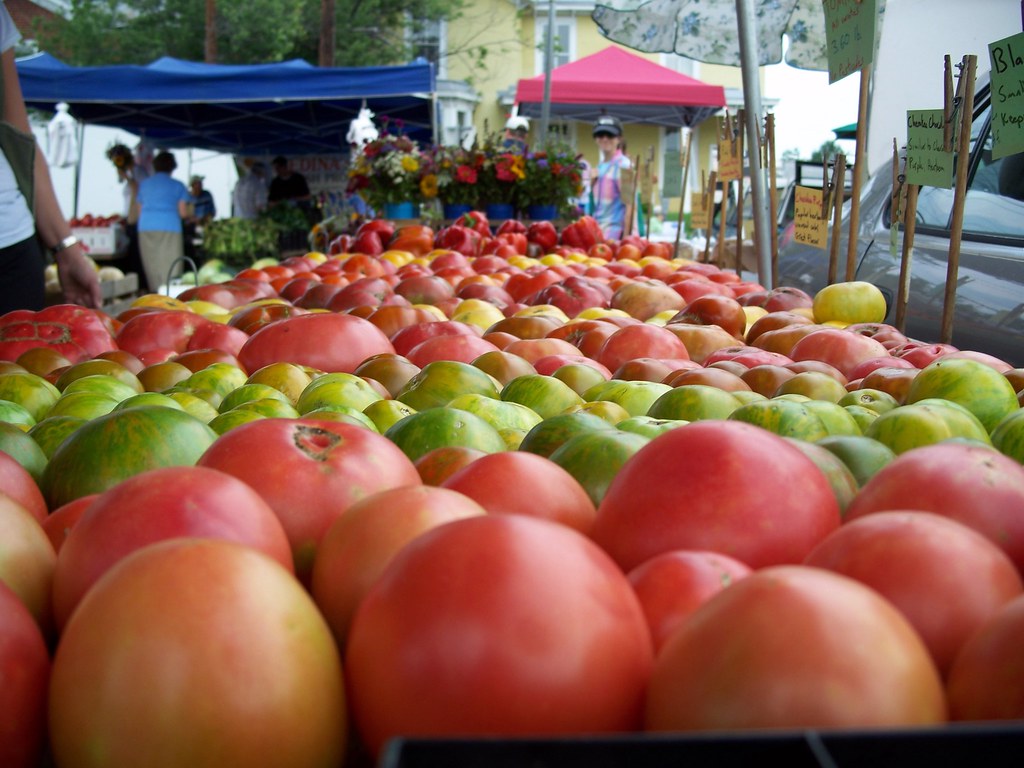The Association for the Advancement of Sustainability in Higher Education, or AASHE, held its annual conference last month at the green (and LEED Gold certified) David L. Lawrence Convention Center in downtown Pittsburgh. This year’s theme was “Creating Sustainable Campuses and Communities”, and, appropriately, many of the workshops centered around place-based education and ways for campuses and their surrounding communities to successfully collaborate.
 |
| Scenic Pittsburgh view from the convention center balcony |
UVa was well represented at the conference, with six staff members, two faculty members, and five students attending (and most of us carpooling!), and a number of us presenting posters or giving presentations. I gave a presentation entitled “Fostering a Local Food Procurement System: UVa Dining’s Relationship with the Local Food Hub”, which went well and seemed to elicit a significant amount of interest from attendees. In fact, that appeared to be the case with all food-related presentations and dialogues, and reinforces what is obviously a growing trend among college and university campuses: institutions want to play a role in ensuring food security and food sustainability.
Here is a sampling of food projects that various schools and organizations shared at the conference:• University of Florida is eradicating 100% of its Styrofoam on campus, including at national brand retail locations like Chik-fil-A
• Arizona State University has established a thriving, 27-vendor farmers market on its campus every other Tuesday throughout the academic year
• Yale is reinventing its salad bar by removing processed meats and replacing with fresh produce; also by removing all processed salad dressings and replacing with high-end olive oils and house-made dressings
• The EPA has just launched its Food Waste Recovery program, to encourage schools to reduce food waste along all tiers of the food waste recovery hierarchy
• Randolph College is designing an edible urban landscape for the green spaces on its campus
• The Marine Stewardship Council provides a 3rd party sustainability certification to wild stocks of fish around the world, and in turn colleges and universities can buy this MSC-certified fish as a way of increasing their percentage of sustainable food purchases
• Emory created a part-time Farmer Liaison position to seek out partnerships with Georgia farmers between 2007 and 2009, and has also published an Eating Sustainably booklet on its website with such sub-topics as “Health Benefits & Sustainable Eating” and “Sustainable Food and the Georgia Economy”
• Students at the University of Western Michigan are in the process of launching a student-run cooperate café on campus, called The Campus Beet
All of these discrete projects illustrate the growing momentum on campuses around the country to be part of the shift in the way that our food is grown, processed, distributed, and consumed. The variety of presentations given is particularly indicative of the great depth and breadth of this food movement: people are approaching the journey towards food and agriculture sustainability from public health, social justice, climate change, and even cultural and heritage perspectives. Food is, of course, deeply personal, and means something to everyone. It makes sense, then, that due to everyone’s vested interest in “eating as an agricultural act”, colleges and universities would rise up to pioneer sustainability innovations in this sector.
Dr. Sandra Steingraber, one of the conference’s keynote speakers, eloquently summed up higher education’s responsibilities where sustainability was concerned, when she told the crowd that we couldn’t let people be lulled into a sense of complacency by dutifully taking out their recycling, or other relatively superficial activities. Instead, it is time for institutions – and the people working, teaching, or being educated at them – to step up and do something heroic.
How can Virginia institutions step up?

No comments:
Post a Comment